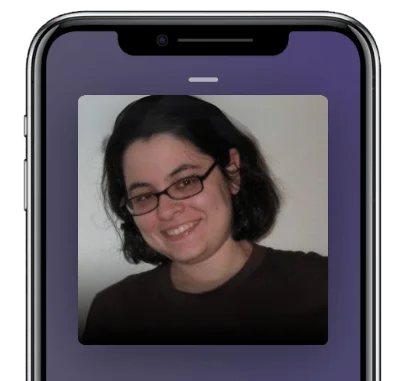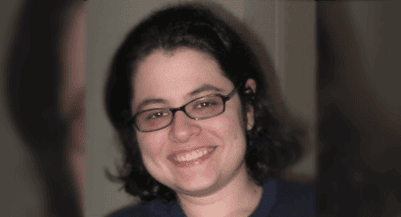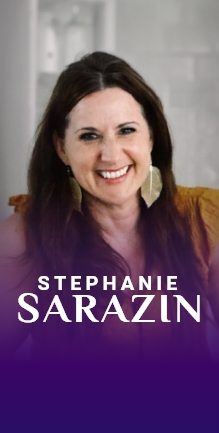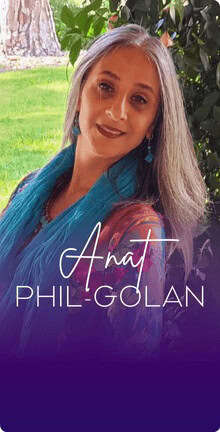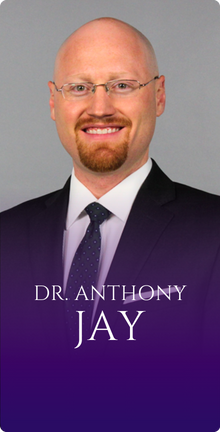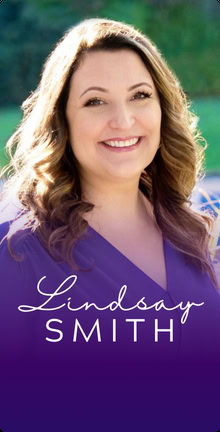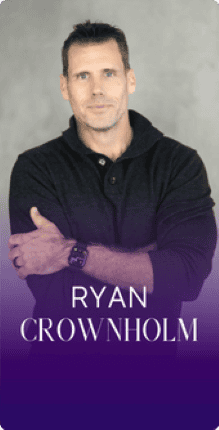In this Episode
- [00:47]Stephan introduces Tamar Weinberg, an author, mother, and founder of TAMAR, a fragrance brand designed for who you are, not who they want you to be.
- [04:23]Tamar shares her pivotal moment after she realized she had postpartum depression and hit rock bottom.
- [08:29]Tamar tells the story of how she started her perfume company, TAMAR.
- [12:18]Tamar talks about the two fragrances she has on her perfume line and the process of creating the fragrances.
- [16:44]Tamar describes wrist sniffing throughout the day as an act of mindfulness.
- [22:37]Stephan asks Tamar if she had to fight postpartum depression with all four of her children.
- [25:59]Tamar discusses the risk of being her brand spokesman by putting herself in a vulnerable position where everything she does is under a microscope.
- [28:13]Tamar shares about a moment when she discovered she was suffering depression and the breakthrough she had after getting out of it.
- [33:34]Tamar explains her daily regimen and a gratitude journal she created to make her feel better.
- [36:56]Visit TAMAR’s website at tamar.com to learn more about intentional fragrance for your self-care ritual.
Tamar, it’s so great to have you on the show.
Thank you, Stephan. I’m so so excited. We’ve known each other for a very long time. And it’s such an honor to be here.
Well, thank you for joining us and sharing your amazing journey and all the lessons you’ve learned in the process with my listeners. So we’ve known each other for well over a decade, maybe it’s a decade and a half, something like that, I think.
Yeah, it’s crazy.
And you would write for TechCrunch and a lot of different well known online journals and so forth. And you have an O’Reilly book. So we have that in common, we’re O’Reilly authors. How did you get into that space, and then how did you then leave that space?
So it was Mashable. It wasn’t TechCrunch.
Oh, Mashable. That’s right.
Yeah. All good. In the beginning, they were the two, and Lifehacker as well. I think it just started. I see myself as an early adopter. I have been pretty active in things like Digg, when Digg was a big thing. That was the front page of the internet, not Reddit. When that was big like I was known as one of the top 100 users, I was number 42 on that list, and that all the blogs those days, and it’s just like 2005, 2006, 2007 more so around then, all the blogs kind of wanted to reach out to these top influencers, because they were known as having the algorithm eventually skewed to push away from, they didn’t want to have this emphasis of these individuals who are constantly pushing content to the front page.
But for a while, if you were there, people knew to follow you, and you were the one who was the tastemaker. So that gave me a little bit of an opportunity to kind of be seen. And I applied to work for Mashable. And they recruited me, and as I was working for them, I ended up writing for Search Engine Roundtable. And then I ran my social media consultancy, kind of like a slow progression into just being visible and kind of understanding at that point, what would be compelling to the internet. Because I guess until like 2005, 2006, 2007, content online was very boring. So this is like a way of getting kind of tugging your emotional heartstrings and making content that otherwise compelled people to act and to react and to share.
Right. And so what happened that you decided to kind of change direction or made that pivot that eventually led to another pivot and so forth?
I guess I tried to find myself. So in 2007, I was working for Mashable. And my social media consultancy was also sort of becoming a thing. And I was blogging, and that’s sort of where the book came from and into the genetic genealogy, which followed a similar path. So I’ll get to that. But in 2009, I was still working in the startup ecosystem, and I started having children, and that’s also when the book was officially published. So my baby and book were both doing June of 2009. The baby came in May, and the book came in July. I think that they’re my babies, but they didn’t come on time. As I think as things went on, I didn’t realize that I had postpartum depression, but I realized that I just was sapped at the joy that I used to have before having children.
All of a sudden, I wanted to live again. And I was like, ‘wow.’ That was sort of the beginning of my optimization journey.
Eventually, in 2016, I gave birth to number four, so I have four children now, very quiet because, believe it or not, they’re in school–surprising at this time. I hit rock bottom and I realized it was a depression that kind of stopped me and eventually like it needed to break. It’s kind of that pinata that kind of fell in, unfortunately, nothing exciting came out. As I was waking up and I was going through the motions, I discovered a vial of perfume. And you know when we have five senses, and we don’t take advantage of, I think all five in our entirety. And when you’re depressed, you don’t care what you look like, and you certainly don’t care what you smell like. So my perspective was I’m just putting it on for the act of like, I don’t even know what my intention was or why I was doing it. But because I’d take smell for granted as I think most of us do. That changed everything for me. All of a sudden, I wanted to live again. And I was like, wow. And that’s sort of the beginning of my optimization journey.
Meanwhile, I had written this book on genetic genealogy, and I’ll kind of explain that little pivot very quickly. So I was at South by Southwest because this is the ecosystem where South by Southwest is a thing. Ancestry.com had a party, I attended that party, got a kit, and I was excited. I tried it with myself and with my son. And we found a cousin whose mother was adopted, and we were trying to find who her birth father was, eventually through over a year of trial and error and kind of understanding how to analyze DNA, which is a little bit of an art, a little bit of science, mostly science. I discovered that she was from my great, great grandfather’s brother, so great, great uncle, and is descended from that line. I didn’t know that this guy existed. So it’s very exciting. Doing that and solving other genetic genealogy mysteries lends itself to writing a book on this topic because there just wasn’t anything out there. And I like to kind of distill complicated things and concepts.
Going back to the story of my perfume like it made me want to live again. And that was the beginning of my optimization journey. I really kind of started adopting healthier habits of living nutrition. I run every single day. Beginning December 24, 2018, I’ve made it a goal of running, if not running, because I can’t physically do it, I would walk in. I would make sure I hit a minimum step goal, whatever I could. Reading every single day, I never had done that. Now, if I was lucky, I would fit it. I would start two books, and I wouldn’t finish them. But like, last year was my first year of finishing 27 books. I’m in the middle of reading five right now. So that’s the life that I’ve kind of adopted in terms of becoming better at living. And so that was sort of the story.
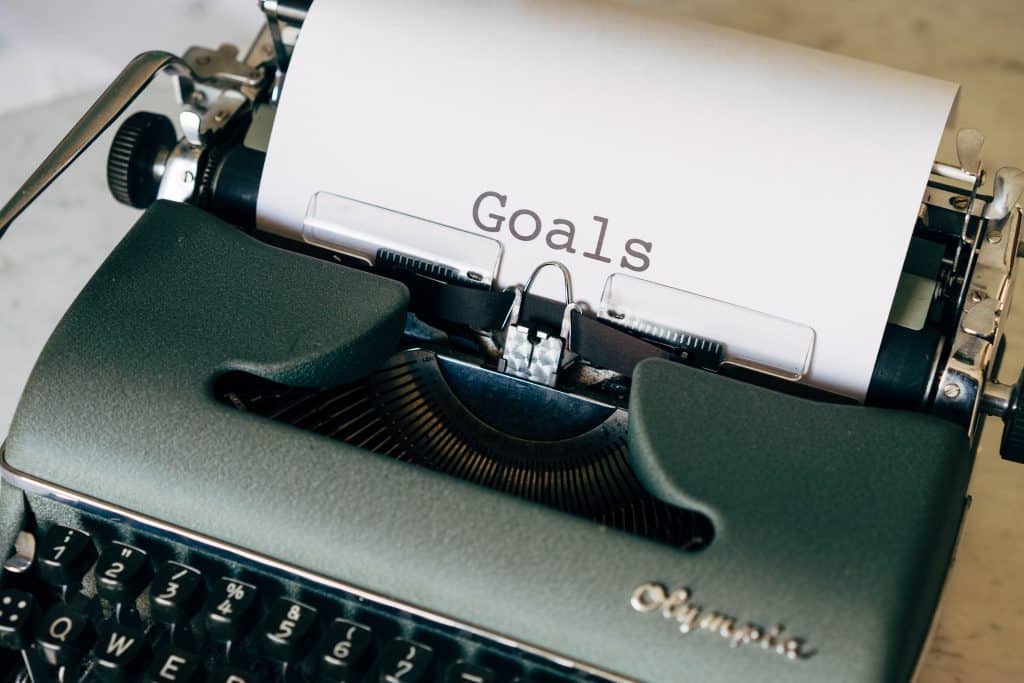
I realized that perfume in scents and the experience of sense with the right mindset could change people who make people feel incredible. And I said I want to start a brand with this foundation because perfume, in general, is not something for me. Like I’m not into dressing up, as you can see right now, I don’t care about the seduction. I don’t need to seduce somebody through a set. But I want to feel good for myself. And doing that could be a stepping stone to propel you to be like a happier version of yourself. For myself, I certainly feel that way.
Amazing. And how did you start this company like to just go from wearing a scent, feeling better because of it, getting out of depression, and then to deciding I’m going to create the startup, I’m going to what bootstrapping or get funding, get angel funding, like how did you get to the point where you now are finalizing the packaging and about ready to start shipping product?
First, to begin with understanding what scent did for me. I kind of like leading to that before, but we have five senses. And I had said before that we don’t take advantage of all our five senses. If I asked you, “What did you wear yesterday? What did you eat yesterday? What did you listen to yesterday? What did you watch yesterday?” You’ll have answers for me pretty quickly. If I asked you what you smelled yesterday, you might look at me like I had three heads. So I realized that there’s something here in terms of something that potentially is disruptive. I couldn’t figure out what to do in the beginning.
If I asked you what you ate or listened to yesterday, you would be able to answer them pretty quickly. But how about asking what you smelled yesterday? Share on XThe first thing that I did was, and this is a little earlier than the question you’re asking, but I think it’s important because why did I decide to do perfume? I mean, I came from the tech and marketing space. I’m like a tomboy. I build my computers, and I’m building a perfume brand. I don’t even own a pair of high heels, and that’s what perfume is seen. It’s such a seductive and sexual product, but that doesn’t resonate with me. So after this exploration of sense that kind of woke my senses up, I ended up going to Sephora, and I would spray perfume literally from like here up to here, just to see what the experience of the scent was. It’s interesting because, in general, perfume has three elements to it, there’s the top notes, the first 10-15 minutes of like the fragrance, then there’s like the middle notes, which is like the crux in the heart of like the product. And it smells very different from the top notes. And then there are the base notes at the bottom notes. So like it depends on the longevity of the perfume on your body. But it could be like the first two to six hours, and then like the last like an hour and a half, it could be either half an hour to like two hours. So it depends, again, on how long it lasts.
And I had learned as I had gone to Sephora, and I tried things that I hated in the beginning, and then I’d be halfway home, and I’d smell something completely different. Like, “I wish I knew what it was,” and I was trying to kind of explore. That was one thing that I did. I took advantage of everything to buy nothing in the freecycle groups, and I just started getting a bunch of perfumes and just getting into my possession to just try different things. I bought everything on eBay, like lots of samples of this and that. I was just so obsessed at the beginning, and I kind of started joining the communities where I can share my love of perfume and learning about other perfumes in general. Because clearly, I’m coming from a newbie perspective. Everyone else has, I guess, what you consider more of a foundation. By the end of 2018, I knew that I wanted to do something again. I still had no idea what I like. But I felt that the best way to start is to communicate the value proposition of wearing perfume for yourself because you want to feel good for self-care and self-love. It’s like your self-ritual, your intentional self-care ritual.
The experience of different types of great scents with the right mindset has the power to change people. It feels incredible. Share on XSo I spent the beginning of 2019 ideating upon that. Because perfume, in general, it’s like artistry. It is all these things are arts and sciences, but it’s artistry; its molecules, it’s like science, it’s a guy in a lab trying to figure out how molecules interact with each other because if you do it wrong, you’re gonna screw it up. So just think about when a kid is first trying to learn how to color, you mix up too many colors, it becomes black. So the same thing happens with perfumery. If you could mix like two completely beautifully sounding molecules together, and it’ll smell like, I don’t know, like a dead body, but maybe it will. So I ended up outsourcing the work. And I said, I just want to launch this with that foundation. And so I have two fragrances right now. One is au parfum and is purely based on some of my experiences as I iterated through this whole process. And the second one is smoking vanilla. And those are just things that I think smell beautiful and smell unique and don’t smell like you’re walking into a mall, and it’s all mainstream. Like it’s supposed to smell amazing, but it’s not supposed to smell like something you’ve smelled before. Because it’s about establishing that new mindset as to just put it on. And you have the expectation that this is what’s going to be. It’s like when I say about optimization, and potentially it’s going to be a great day, I’m going to do something that optimizes myself. Whenever I put on perfume, I always have something in my mind. And I embed that, and I live that.
I guess you can put some great things together, and it could smell amazing, or it could smell like a dentist’s office
So yeah, the thought process for me was hiring a guy, having him iterate upon it. He’s in California, so he’s sending things to me in New York, me giving him feedback. And we went through that process a few times. I went to Times Square and Grand Central, and the Brian Park area, and I asked random strangers for their opinions on the fragrances. So I got the market research under the best of the viability. I still had to iterate upon it. It wasn’t perfect. There was one that smelled like a dentist office. So I had to learn. I guess you can put some great things together, and it could smell amazing, or it could smell like a dentist’s office, not necessarily a dead body that time around. And I knew I wanted to do this with the understanding of self-acceptance because, at one point, I never liked myself, and now I do. And I did a crowdfunding campaign in May and had, I guess I would call it, a successful launch, and now I’m just making it happen. The final scents have been shipped off to the guy locally, and we’re mixing with the alcohol, and then we’re gonna stick it in the bottles, and then we’re gonna get it all done. And it’s very close. It’s exciting. Scary.
Oh, congratulations.
Yeah, thank you.
How did you crowdfund a product that nobody could try or get a sense of through an online video?
It’s not an easy thing. I can tell you that. I can also say that I’ve seen competitors in the space, like launching their crowdfunding campaigns, and I’ve kind of hit in the middle. Like, I’ve done more than double of somebody who has a more established foundation. I think there are a couple of things. First of all, people know me, and they kind of believe in me, and they see that you’ve done a lot and you’ve been able to accomplish a lot. So I believe that you’ll be able to do this. I’ve done a lot in the coronavirus cast. A lot of my neighbors have also been thinking, “Thank you very much, Tamar. Let me support you.” When you launch a crowdfunding campaign, and nobody knows who you are, the struggle is they’re not going to necessarily buy something that they have never smelled before, or they’ll do it because they believe the entrepreneur behind it. So ultimately, and they say, most of your campaign, your first trust comes from friends and family. So you need to have that. You need to have a community and also need to have friends and family. It’s a lot harder because no one has ever smelled the product. The video does communicate some value like people saying, “Oh, it smells good,” so there are some people who’ve been able to validate it on camera.
Social proof is incredibly important. It’s also the descriptor that people need to see.
Some social proof, yeah.
Yeah, we got it, of course, the social proof is incredibly important. It’s also the descriptor that people need to see. So that’s why I say it’s smoking vanilla. And it’s like, you walk into a warm room, and you’re like, it’s a winter day, it’s a winter night, and you’re just sitting by the fire like that sort of. And it’s also sort of like where I was going, and I wanted to kind of communicate what it feels like when I walk outside. I don’t have a fireplace in my house. I grew up in Florida. Also, I wouldn’t know how to treat one, and I would be afraid of burning my house down. So the best experience that I have of smoke is walking outside and smelling the smoke emanating from all the chimneys in my neighborhood. So I wanted to capture that. So I have to articulate that. So it’s all about good copywriting and the like. Ultimately, it comes down to, I think, two core things; people believing in you and people kind of believing in the products.

And to another separate extent is people wanting to do what the mission is communicating. This is for yourself, and it’s not for other people. And a lot of people have said, I never thought of perfume this way. I always think of wearing perfume for other people. And it’s usually set and forget it that you put it on in the morning and you’re happy if you get compliments, and you maybe do it just to fish for compliments. But this was about putting it on in the morning and going like this. And I’m trying to say I want to normalize wrist sniffing throughout the day. You do this, and it grounds you. It’s like an act of mindfulness. It’s an act of meditation without having to sit for five minutes or 10 minutes and doing that, which a lot of people feel like could be a waste of time. So it’s funny because I don’t necessarily know if my competitors are perfumes, but my competitive set is like headspace and calm. It’s a really interesting dynamic. It’s not something that people have seen, and yet I say this, having said I was earlier on in the podcast that I’m an early adopter. So I do believe that there is potential here, but I know that I’m super early. And I think over time, people will embrace this and understand that actually, and there’s some validation of what I’m saying.
Right. Well, it sounds very exciting. And I imagine you probably put some of your own money into this to help make it go, right? So you got the skin in the game, so to speak.
A hundred percent yes. So you had asked about that also if I’m getting funding or bootstrapping. So it’s 100% bootstrap right now with the support of the crowdfunding campaign. So I’m still trying to determine because I haven’t quite finalized my classes for all the initial orders. But I’m still trying to determine if I’m breakeven or if I’m profitable, but I believe that I am slightly in a better place. But this is going to be a long haul. It’s going to be a huge challenge, but at the same time, it’s like I have a mission to help people. I believe that this is something that I can do, and we’ll achieve those goals, and I’m excited. I’m hoping that over time, we’ll see that.
So do you anticipate that some people who are suffering from depression will be able to get some healing or some solace or something valuable out of the fragrance?
There are a lot of regular practices that I think are touted as potential ways to heal depression and to address depression.
I believe so. There are a few things that I want to do to support that; number one is potentially to commission a study for the validation of my claim. But I have to be very mindful right now of making any medical claims that this can take people out of depression because I don’t want the FDA knocking on my door saying anything. That is my objective, and it is like we can take practice. There are a lot of regular practices that I think are touted as potential ways to heal depression and to address depression. And I’m in the middle of taking a class right now on Coursera. It’s free, so I highly recommend that everybody do it. It’s called The Science of Well-Being. It’s offered by Professor Laurie Santos at Yale University. And it’s an insightful class about just how you can push yourself away from wanting materially and experiencing and feeling better for yourself. In the last week’s course, they did a study about how people feel whether they exercise or they take medication, or they exercise and take medication together.
And there’s third, so these are seriously depressed people. And there are three groups of people. And they showed that anyone who exercises usually exercises their way out of depression. There’s a subreddit called EOOD exercise out of depression. And there are proven results that show that exercise can take people out of depression over medication. So you see that the relapse with medication is more likely than if you exercise. So I like to think that fragrance can be one of those things that you can add to your daily regimen. Hopefully, fragrance could be an impetus to try to adopt other things. Like for me, fragrance was like the start of that mindset. But that mindset shift in the optimization of myself began with that to push myself into. I want to learn every single day. I’m a lifelong learner now, which is funny, because like ten years ago, I would be like, done learning, like, I didn’t want to do anything. Now I wake up, and I’m excited to do that. And all these things in my life that I wouldn’t have otherwise done without that push, that thrust, that propeller that kind of started with the experience of something that for me was very new.
Feeling good about yourself is a massive step in creating a happier version of yourself. Share on XAnd to me, to some degree, very different from what I was used to. I want to just put a little disclosure here and a disclaimer that if it’s a perfume that you love, but it’s associated with other memories, it might not be able to establish the foundation that something new that you associate with new memories creates. Because scents and memory it’s very close in your brain. That is why they say scent is so associated with memory. And if you smell things, it brings you back to your childhood, and it brings you back to all these different memories. You can potentially create new memories with something that you’ve never smelled before. But if it’s something you smelled before, it could be harder. And I’ve had conversations with people who say fragrances have taken them out of depression. I’ve had conversations with people saying that “it makes me feel better.” And I’ve had conversations with people saying, “I’ve tried it, and I haven’t been able to get anything out of it.” And I think the reason why is because that particular scent that they’ve tried has been so grounded in other memories that creating something new, you need to kind of experience a new scent for that. I can’t again make any medical claims, which is why potentially I want a commission to study to validate this. But I do believe that I’m onto something here, and I don’t know where it’ll take me or anyone else, but it’s all about it. Everything at the end of the day comes from the mind and its willpower and its mindset, and it’s about really eventually using that. This can be kind of an easier way to push yourself there, especially if you don’t experience all five senses in their entirety.
Gotcha. So did you have postpartum depression each time with all four children?
When you’re a parent of young children, you become very vulnerable.
So, I think it never went away. It was something I didn’t have awareness about. When my son was first born, I remember I was ready to have more kids. So he was five weeks old, and I remember having this moment when I just saw him, and I was just like, I want to have more kids. But I realized progressively that joy just sapped away, and it was more difficult. And then my daughter was born, and then my other daughter was born, and then my other son was born. And I think, over time, it just stayed stable. Like I used to be super excited. I was in a newlywed life. We were like this. And then which you can’t see because of my background, and then it eventually went like that, and then I can’t even see my hand anymore. So that was after 2016. But I also think because, like, eventually, I became very vulnerable. And I latched on to a codependent relationship with a friend.
When you’re a parent of young children, even if you’re a mother of a child, especially children, you become very vulnerable. And it’s your job to cater to the wants and the needs of your children, but no one’s catering to you. And I think eventually, that became something that I finally found a means of getting that cater to, but in an unhealthy way. And eventually, that relationship completely fizzled. And I was like, sort of trying to climb my way out of a hole. Eventually, the person who I felt was getting there stepped on my feet and pushed me back in. And while it was the worst thing I’ve ever experienced in my life, it might have been the best thing that ever happened to me. So it was very difficult because I couldn’t make sense of it. And to some degree, I still have not even I haven’t even hit closure on that point. I don’t know if I ever will. And I don’t know where things are going to be, but I know that I’m okay. I would love to have things ended differently, but that’s where I am.
Yeah, but you see, there’s a gift in it because it helped you get to where you are now.
I needed to kind of go through hell and back to establish that this is my calling.
Right. I mean, I guess I needed to kind of go through hell and back to kind of establish that this is my calling. Living basically over a third of my life depressed, it’s very difficult to reconcile. And it’s kind of frustrating because I’m a go-getter, and I’ve worked in the startup ecosystem. And I follow all the startup founders, and I see these successful white males, and they’re like the 20s and 30s, who are doing amazing things. And I kind of see myself like, I’m like them. I can have done a lot of these things. But now I’m a mom, and I’m like nearing 40 with four children. Where have things gone wrong? And I’m like, maybe this needs to happen, and maybe I need to eventually launch a successful startup and be like that 40 something whenever I hit that founder where that stuff is going to happen. And I’m saying, “Better late than never,” because I’ve been kind of working my way toward this, and I believe that I’ll get there.
Yeah, the only person you need to get on board is yourself, right? And to convince them that you’re worthy and that you can do this is you.
Yeah. As you said, it ties into that whole thing about mindset. And finally, I have the right mindset, and now I feel like it’s in an impenetrable mindset. And I just really hope I have this intelligible mindset forever. Because I’ve seen myself fall, and it’s extremely difficult to fail and to kind of do that so publicly. And like I say to myself, you never know because I’ve been there. And I’ve been weakened, I’ve been vulnerable before.
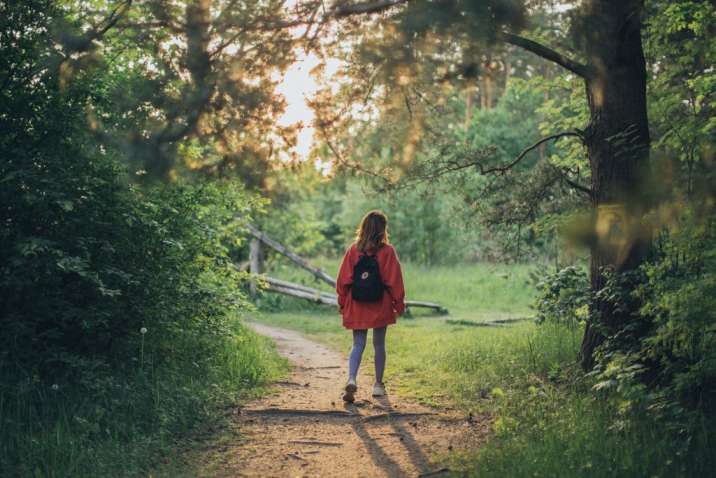
What do you mean by “so publicly?”
Yeah. When you put yourself in a position of spokesman for your brands, for me, I’m taking risks and positioning myself, positioning my vulnerability in a way that certainly opens the opportunity for people to come up to me and say, “Hey, can you help me with my depression?” which I’ve done. Everything you do is under a microscope. I was reading The Observer Effect; they wrote a piece on Daniel Ek, the CEO of Spotify. And it’s an interesting piece about his morning ritual, and founders and all these things. And as I’m reading the article, they have like, the spokesperson for the companies on the phone, and I’m like, I’m just me, myself and I right now. But that’s the thing you have to have a gated person. If you say something wrong, you’re screwed. It was like the guy in CrossFit a few months ago, and he had said something that was very, very controversial. And he was asked to step down, and people stopped supporting him. Like I would like to hope that I’ll become big enough where those things will happen. But at the same time, that totally could blow up in my face. So we’ll just see and play by ear right now.
Wow. Okay. So how did you discover that you were depressed? Was there a moment, like an epiphany, that happened? Was it when you smell that fragrance that you realize, “Oh, my God, I’m depressed, and I didn’t even realize it.” It’s kind of like that frog in the pot of boiling water, and you turn the heat up slowly–I know, this is a fallacy–but they supposedly don’t notice and don’t hop out. So was there a moment?
So I don’t think there was a real moment of like, when I discovered that I was depressed, I knew that I was getting depressed as I became vulnerable. And I started kind of becoming dependent upon the person who was kind of empowering that vulnerability. So that was probably in early 2017. I started seeing a psychiatrist to help me deal with my emotions while this was happening. At a certain point, I was seeing him once a week, and then I was on medication. And I was seeing him twice a week. And this isn’t a psychologist, and this is a psychiatrist. So these are the expensive doctors who are usually out of network. So my goal, hopefully, is to kind of empower mental health in more financially accessible ways if this thing becomes big, and I’m hoping it does. But yeah, that started in 2017, and it continued into 2018.
It’s probably the rawest, biggest, scariest personal thing I’ve ever written. It’s a very vulnerable personal essay.
When I finally was out of the depression, I looked back, retroactively looked back, and I realized I was depressed for a long time. I became vulnerable over time, but it was because, as a mother, I guess I needed somebody to nurture me emotionally, and I wasn’t getting that. I wrote an insightful piece, and you could share that as well, on Medium. It’s kind of about how that trajectory began and how, when looking back, I noticed those cracks are starting to form. So you’ll be able to read that. It’s probably the rawest, biggest, scariest personal thing I’ve ever written. It’s a very vulnerable personal essay on where this came from. But it doesn’t come from a place of wanting to be profitable or whatever, because a lot of people are like you’re sharing your story for profitability. Not many people have said that, but I’ve certainly been there with that. And I feel like this isn’t necessarily about me.
This is about trying to experience something that you’ve never experienced before. It could be anybody’s scent, and it doesn’t have to be mine. But mine has a mission and is so different. But again, literally for you, Stephan, you can take your wife’s perfume and put it on. Perfume does not have to be gendered. And for me, mine is unisex. In most perfumes in the 20s and the 30s, women were wearing tobacco and leather. Now, 100 years later of women not wanting to touch tobacco and leather because those are marketed to men. But there’s no reason to do that. Like men can wear florals, women can wear musks, like things that are typically more male-focused fragrances. There’s no reason to kind of silo it to a specific gender. So anybody can experience this today. They don’t have to wait for my product. And let’s use my product as a means of your self-care and acceptance if you would like to. I wouldn’t mind.
Yeah. All right, and how do you get the product? Tamar.com, I’m guessing, is the place to go?
Tamar.com. Yeah. Once upon a time, that was gonna be my resume because that’s my name. But when I told my brother-in-law in November 2018, we were at Thanksgiving, and I said to him, “I want to launch a perfume brand just because it saves me.” He’s like, “You should call it Tamar.” So yes, you could buy it at Tamar.com, and hopefully, there’ll be more coming. So you could sign up for the newsletter and learn more about the journey, lots of fun things going on.
Scent, emotion, and memory are intertwined in the chemistry of the brain. Share on XAwesome. Now, the daily regimen that you’ve developed for yourself, the nutrition, the running, the reading, and so forth, how did you come about to establish those particular habits and not others?
I think it was more of an interest. Running is something that I don’t know if I love, I’ll be perfectly honest. But I had said to myself. I remembered like when I was working at Mashable, back in the day in 2013, I’d seen one of my colleagues win the marathon. I’m like, “One day. I want to do that.” And I started talking to her, and I wasn’t really in the office. I was working remotely. Typically I’m a very remote-based worker. I just knew I was going to do that. And the entire office was on-site and not me, for many years. And that was sort of the challenge of becoming a mom and being the one remote worker, that led to depression. But I wanted to become more enlightened. So reading became that thing and running.
And I use a few apps that also helped me with that. I use an app called Daylio; it’s a journaling app, where I establish some goals like running, fitness workout. One meal a day is my thing, so it has nutrition planning. I do intermittent fasting. So I use apps to stick with it. And I use another app, which is only available for Android, called 7 Weeks. So when it comes to my daily ritual, I have certain things like, for example, one meal a day, breaking a sweat, reading one long article online without interruption, listening to an educational video, like I’m reading off of it right now. I do some genealogy, and I’ve fallen behind on kind of going through my relatives and establishing how they’re connected. So I have like processing a relative, doing an act of kindness, which is sort of like following the Coursera course of like, this is something you should do. So I always want to be cognizant of some sort of act of kindness and then like decluttering on top of running and other things.
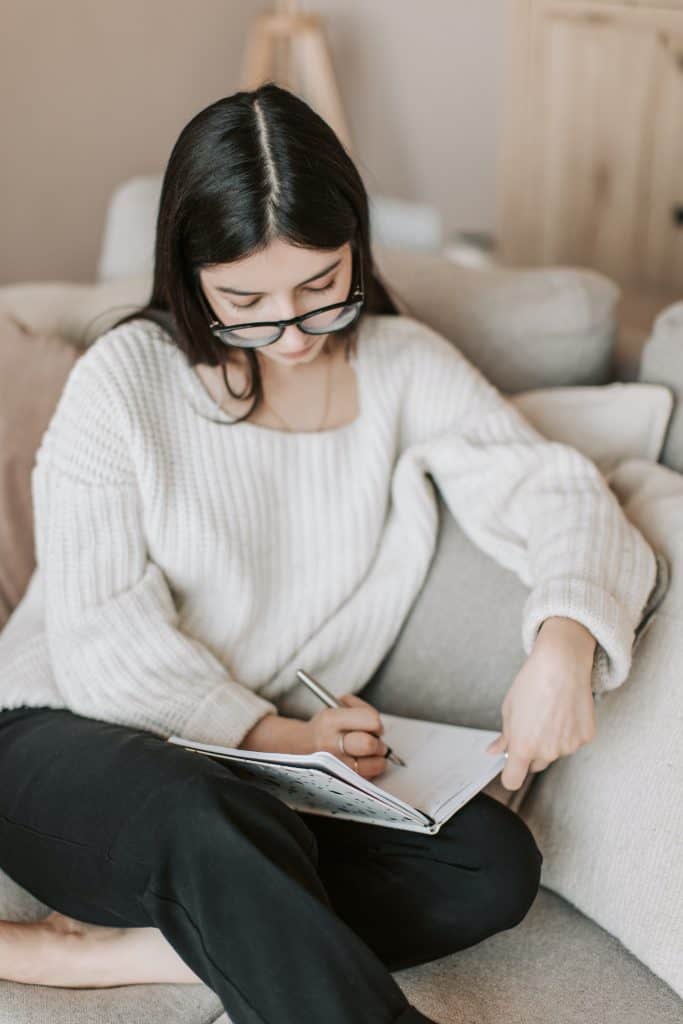
My daily ritual, by the way, doesn’t have any timeline. I don’t like to do it the first thing in the morning, I just make sure before I go to bed, I want to do this. And I have a gratitude journal, and I tried to kind of really do things that will eventually make me feel good. And I look at the gratitude journal, and it makes me feel better. And I think a lot of us struggle all the time because they sound nice in theory, but they’re not employed in practice. So it kind of keeps me stick to my goal as much as possible. That being said, I’m not perfect. So there are certainly days where I’m not doing all this stuff. I mean, eventually, I do have four kids, and I do have work and other things that I need to do every single day. So I have to be mindful of my human fallacies in terms of not being necessarily perfect. But in terms of reading and running, those are things that are not negotiable. Like if it’s not running, it’ll be, like I said, walking. I will make sure I do, at least for myself. So in my Garmin Watch, 6500 steps, which is the equivalent of 10,000 steps on a Fitbit, because I went from a Fitbit. So it’s a lot harder to walk here, and yeah, it’s really weird.
So this is all on a sheet of paper?
No, it’s apps. So the apps are called Daylio and 7 Weeks. 7 Weeks is an Android app. That would be fun to show you if I could share it.
Well, maybe you can screenshot it.
Yes. So like, for example, here, can you see this?
Not really.
Okay. Because there are some breaks where I like, I can share how I wasn’t always consistent on some of my goals here. Again, not killing myself for it. But yeah, I could do that. And my gratitude journal right now, I’m using an app called Presently, which is very low friction, very easy. And that’s my home screen, like these things that kind of make me and keep me tied to my task. I’m looking at my home screen right now. My Fitness Pal, Zero for intermittent fasting, 7 Weeks for goal setting, TickTick for tasks. My Garmin, my WHOOP, which is my heart rate monitor, also Ate, which is like food tracking. Duolingo for language, Daylio, Presently, Strava, and Brain.fm for focus. So it’s all about being. I guess you would call it mindful living or something? But I’m impressed by my home screen.
It sounds impressive. You must have done a lot of research to find all those different apps.
Yeah, it took me a while. I went through four gratitude journals before I found this one. But there’s really like followings behind a lot of these things. Like there’s a culture behind figuring it all out.
If you can screenshot your home screen too.
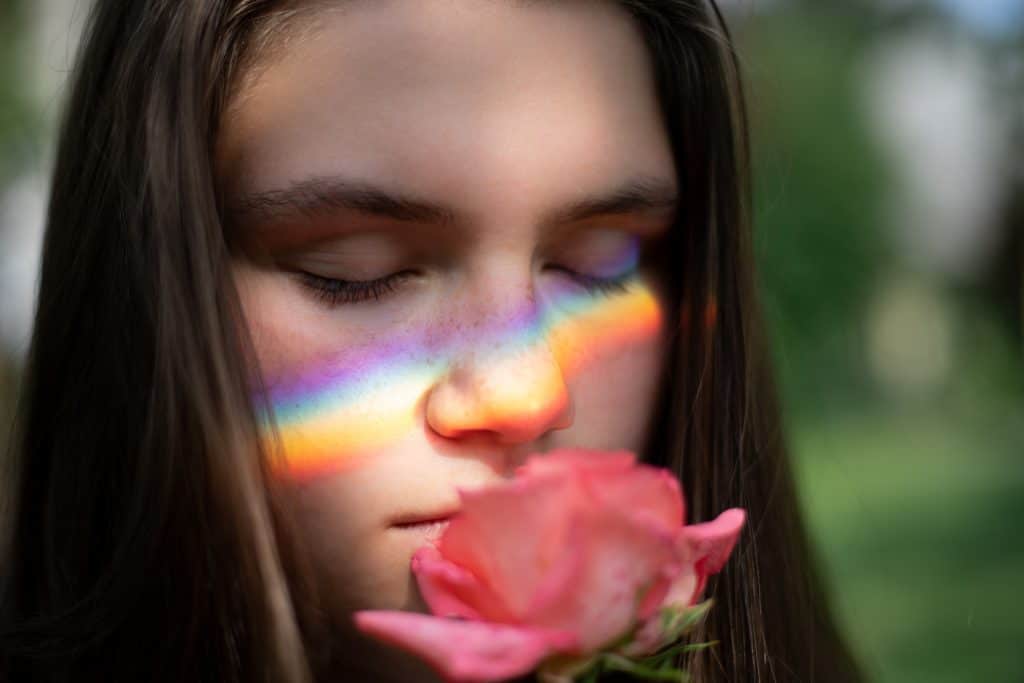
Yeah, no problem at all.
Awesome. Yeah. So I know we’re out of time. But again, your website is Tamar.com, and by the time this episode airs, hopefully, your product will be available and shipping.
Yeah, people are already ordering. So no reason to delay, although if you live overseas, then we’re gonna have to coordinate.
Yeah. That’s not quite as easy. Like getting stuff here to Israel is a little tricky. Especially if it’s over $70, then you got the duties and everything.
Oh, right. Yeah, duties. That’s a challenge. And it’s something that like, I make Terms of Service, I had to be mindful of like you could say lower, but I don’t know if it got lost, that’d be an expensive claim.
Being consistent is crucial. But, knowing that there'll be days where you're just out of your element and still okay is also healthy. Share on XYeah. Thank you so much, Tamar. This was great. And I wish you all the best, and lot’s of luck on this product launch. I’m very happy for you that you’ve been able to build this new business, and I’m confident it’s gonna go great for you.
Yeah, thank you so much. I appreciate you having me. Thank you so much, Stephan.
Yep. Thank you. And thank you, listeners. Now go and support Tamar by buying her fragrance and gift it to a friend, and we’ll catch you on the next episode of Get Yourself Optimized.


